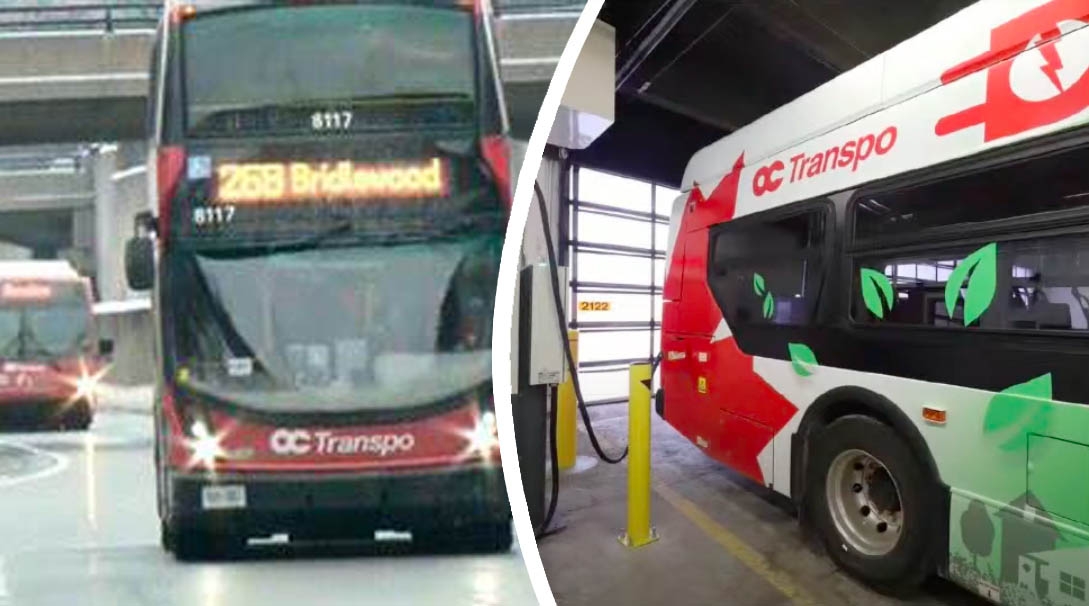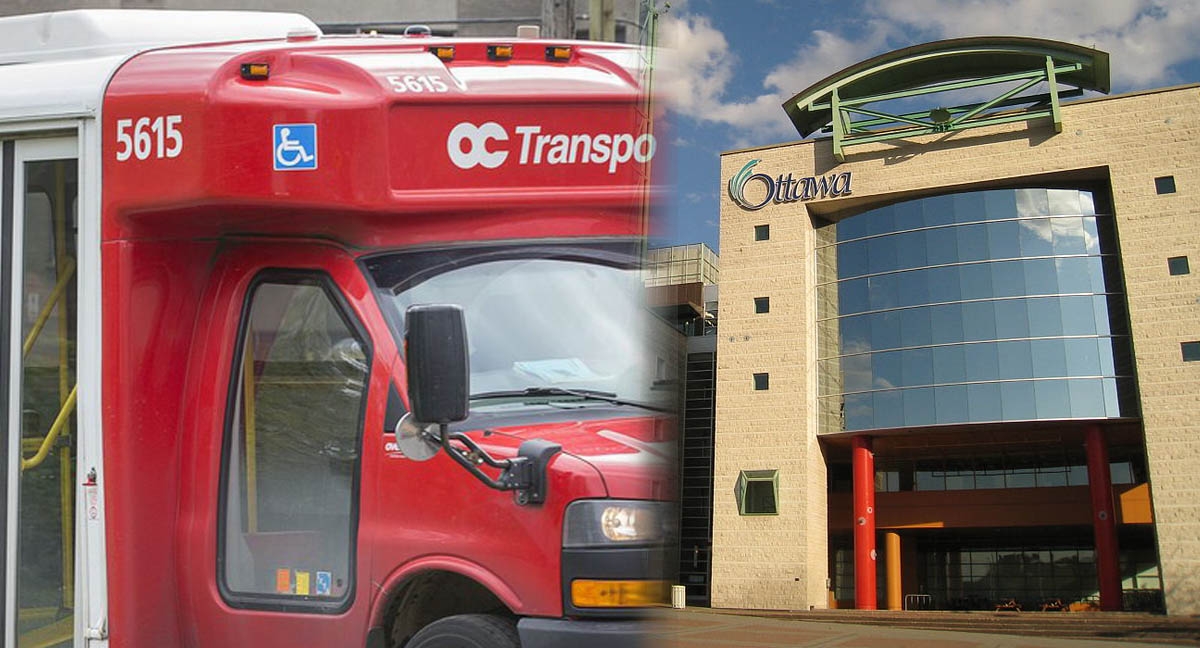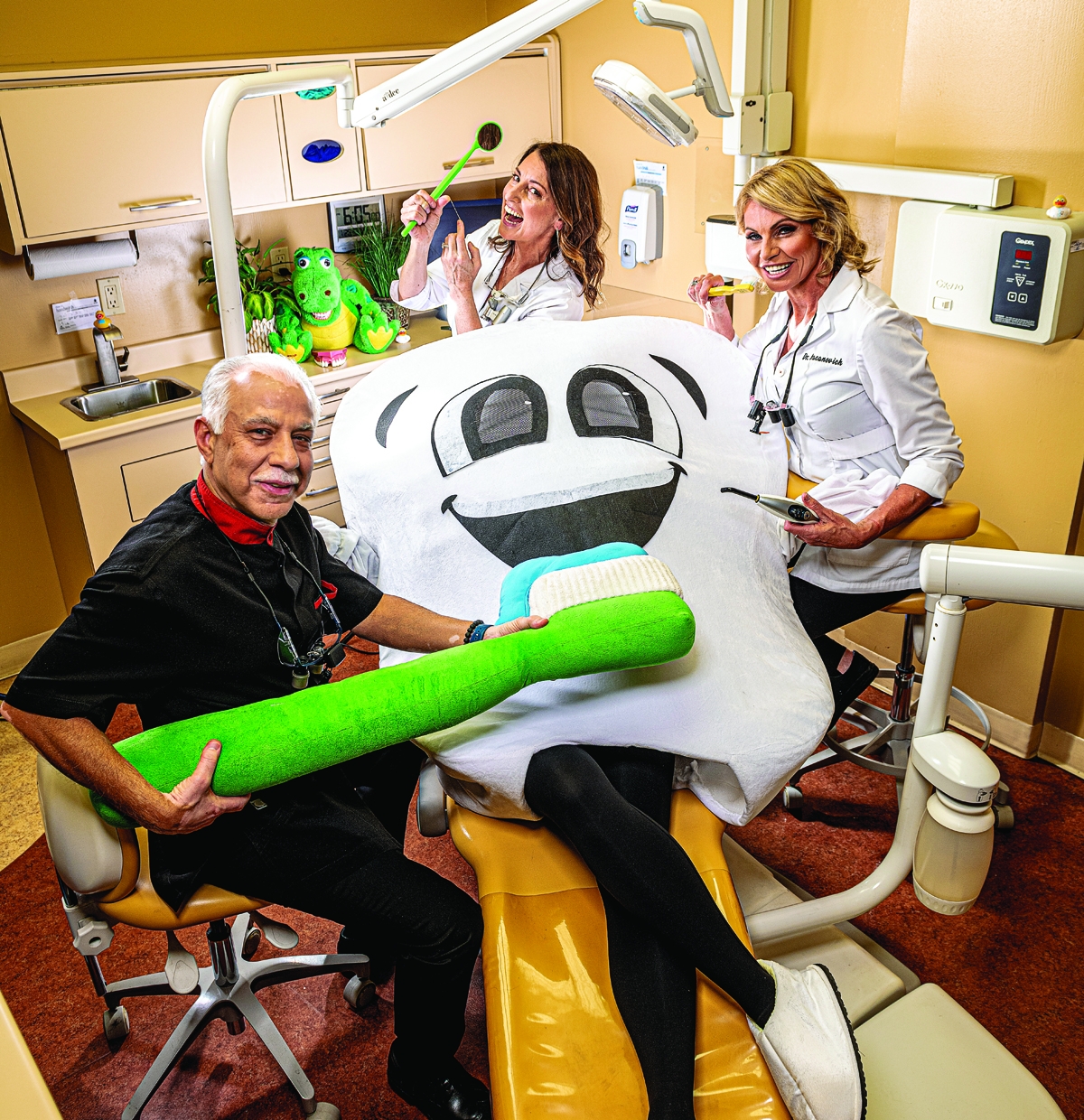
Transit Comission looks into electric bus program and funding
ABOVE: Electric buses will gradually replace the city's diesel buses.
A motion to call a special meeting of the Ottawa Transit Commission was passed at Wednesday’s Council meeting. This followed several councillors expressing concern about pushing through the purchase of electric buses following the LRT debacle.
The near unanimous support for further debate was based on the general attitude that if the program went south, the current 2022-2026 Ottawa City Council would be solely responsible for any failures. The discussion came after federal funding for the buses was confirmed by OC head Renee Amilcar. The head of OC Transpo encouraged moving forward quickly with the project despite the new council not being up-to-speed.
Today’s special meeting began with OC Transpo head Renee Amilcar giving a briefing on the electric bus program. Before her PowerPoint had even started, Amilcar noted that the city’s current electric bus fleet of four vehicles had performed well during the January 26th winter storm. The OC head then pointed out that the current inventory of electric buses is on a pilot program alongside the existing OC Transpo diesel fleet.
Amilcar stated, "it’s not about buying buses; it’s about transforming our transit system.” She then gave a history of the bus program, noting the Council's declaration of a ‘climate emergency’ in April 2019.
In 2021 the previous city council approved the purchase of zero-emission vehicles for all future bus acquisitions. Amilcar is supportive of this program and noted that if the city did not move ahead with the purchase, it could become difficult to purchase replacement parts for the diesel buses, with manufacturers pivoting to building electric vehicles. Amilcar also believes that technology will continue to evolve and said that “she knows technology very well” from her time in Montreal.
OC Transpo’s Manager of Systems and Operations Integration, Richard Holder, noted that the buses would be moved into service gradually over five years, concluding in 2027. Holder stated that the expected service life of the current diesel-powered buses ranges from 2025 for older vehicles to 2036 for those purchased more recently. Holder called the electric bus program a “slow progressive transition,” with 26 buses scheduled to arrive next year.
Holder reiterated Amilcars’ point that the technology is not new, pointing out that Winnipeg has used electric buses since 2012 and that the buses are equipped with auxiliary diesel heaters to extend battery life in the cold.
Citizen delegates and interest groups spoke following the briefing. Joey Cyples of Enbridge Gas asked if the city had considered using renewable natural gas buses. He argued that these systems could be cheaper and cleaner to operate than battery-powered buses. Cyples referred to Calgary and Hamilton, which both have experience with natural gas buses, and explained that the refueling time is much faster than recharging electric vehicles.
Councillor Jeff Lieper asked the OC Transpo head if the electric buses took longer to repair time than other buses. Maintenance specialist Jim Greer said the current four electric vehicles have a quick turnaround in the garage and run mileage comparable to the diesel buses in city's inventory without issue.
Councillor Tim Tierney inquired into procedures to ensure that batteries don’t die on the streets. Staff assured Tierney that the buses have a 15 percent battery warning and a recovery process. However, none of the four pilot vehicles have died while in service.
The Transit Commission voted 7-1 to continue the process of purchasing the buses and send the program back to Council, where it will be part of the ongoing budgetary process. The only dissenting member of the Transit Commission was Councillor Wilson Lo, who formerly worked as a driver at OC Transpo.









